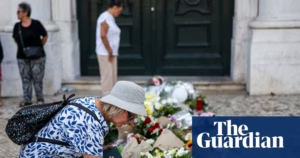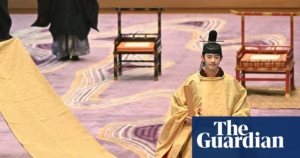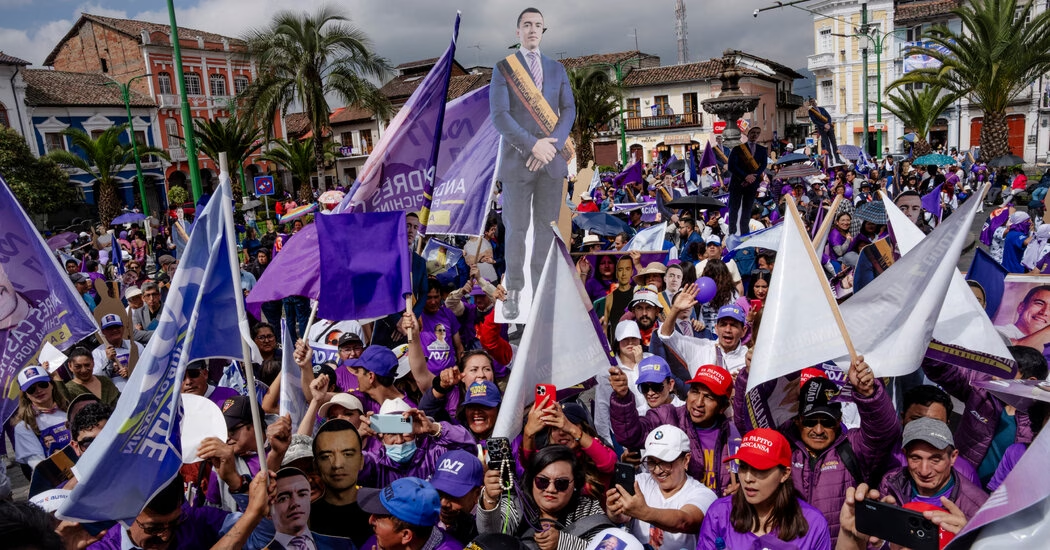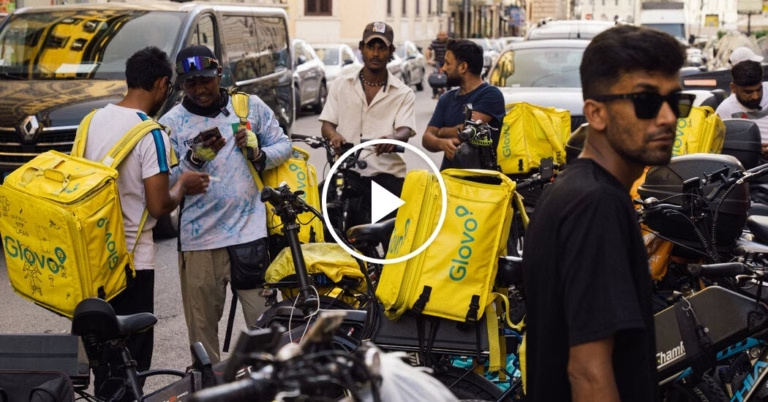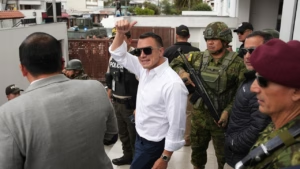Ecuador’s president, who surprisingly gained traction in the polls to secure a reduced term in 2023, emerged as the clear winner of the presidential election on Sunday, demonstrating voters’ trust in his pledges to address the security crisis with a firm hand. Daniel Noboa, 37, triumphed over Luisa González, 47, the designated successor of former President Rafael Correa, in a contest marked by both candidates accusing each other of electoral infractions. González, speaking from her party’s headquarters, stated her refusal to acknowledge the outcome, despite historical instances where her party acknowledged losses based on poll and statistic indicators.
Aligning with his law-and-order stance, Noboa celebrated his victory in Olón amid controversy over his declaration of a state of emergency in several regions, primarily strongholds of González, ahead of the election. This move, criticized as an effort to deter voting among her supporters, included restrictions on social activities and granted authorities permission to enter homes without consent, purportedly to address violence in these areas.
Ecuador’s ongoing issues with drug-related violence and unemployment, exacerbated by an ineffective justice system entangled in corruption and underfunding, have impacted the nation’s role in the global drug trade and the livelihoods of its 18 million citizens. Noboa, securing 56 percent of the vote compared to González’s 44 percent, now faces the challenge of translating his tough-on-crime rhetoric into tangible results.
Despite the decisive lead in favor of Noboa, the election was tense, with protests from González’s supporters demanding a recount. Observers note Noboa’s ambivalent record on law enforcement, with a gap between his public stance and the reality of street-level security. Hispanic political analyst Caroline Ávila, highlights this disconnect, citing a preference for social media showcases over concrete actions.
Noboa’s victory underscores a shift in Ecuador’s political landscape, with his first foray into politics four years ago and a significant climb in the polls following a strong debate performance. His focus on international relations, including ties with President Trump, reflects his vision for Ecuador’s place on the world stage.
The opposition, represented by González, a former member of the Correa government, reflects a divided nation. Correa’s legacy is mixed: while his term saw economic growth, improved crime rates, and investments in health and education, his corruption conviction and authoritarian leanings alienated many.
Supporters of Noboa express hope in his leadership for economic improvements through foreign investment and trade, and for measures against rampant crime affecting small businesses. The Political landscape post-election will closely watch how Noboa navigates these significant challenges, as his presidency offers both opportunity and scrutiny.
Source: https://www.nytimes.com/2025/04/13/world/americas/ecuador-election.html
